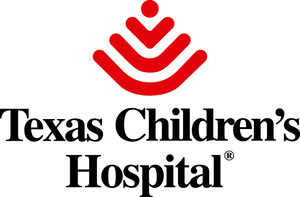Since 2012, Texas Children's has performed more infant lung transplants than any other hospital in the nation
HOUSTON, Oct. 27, 2022 /PRNewswire/ -- Twenty years ago this month, the Lung Transplant Program at Texas Children's Hospital was launched. Since October 2002, Texas Children's transplant team has performed 240 pediatric lung transplants.
"We are honored to meet this remarkable milestone — it's not just about the number of transplants our team has performed; it's about how many children's lives have been saved through the Lung Transplant Program here at Texas Children's Hospital," said Mark A. Wallace, President and CEO of Texas Children's Hospital. "I am incredibly proud of the program that our team has created, and I know we will continue to spearhead groundbreaking research and provide exceptional care for each and every child in need of a lung transplant."
Historically, patients on life support and infants have been the most challenging lung transplant cases. Over the last decade, Texas Children's has performed more infant lung transplants than any other hospital in the nation.
One of these neonatal lung transplant patients, Cameron Witsman, was born with congenital cystic adenomatoid malformation (CCAM), a lesion that appears as a mass in a fetus's lung before birth. Despite surgeries to remove the cysts, Cameron's lungs were not able to recover.
At the time, only two hospitals in the United States performed infant lung transplants, and Texas Children's was one of them. Cameron and his mom traveled from their home in Florida to Houston to wait for the call that donor lungs were available. After three weeks, they got that miracle call, and Cameron received the lifesaving transplant he needed.
"After receiving his new lungs and the initial recovery period, Cameron's post-transplant journey, honestly, has been fairly uneventful," says his mom, Caroline. "Cameron isn't a typical teenager; he prefers talking to adults and doing yard work, rather than playing video games. He's an old soul."
Now, 13 years after receiving his lung transplant, Cameron feels compelled to honor his donor by using his lungs and being as active as possible. He loves to ride his bike and play basketball, and he even participated in the virtual Transplant Olympics competition in 2020. He hopes to be able to travel to the games and compete once the event is held in person again.
"Over the last 20 years, we have seen countless medical advancements in the organ transplant field, and we have developed unique transplant strategies for children with a wide variety of diagnoses, from cystic fibrosis to pulmonary hypertension," said Dr. Larry Hollier, Surgeon-In-Chief at Texas Children's Hospital. "Looking ahead, we are excited about building an even stronger program and leading vital research focused on how best to support patients while they wait for a lung transplant and on improving transplant outcomes. Finally, I want to recognize the efforts of my two surgical colleagues, Dr. Jeffrey Heinle and Dr. Dean McKenzie, who, since the founding of this program, were the two primary surgeons performing these life-saving operations regardless of the time of day the call came in."
The program excels in pediatric lung transplantation because Texas Children's expert team leverages state-of-the-art technology and optimizes medical therapies, including tailored immune suppression; physical therapy; nutritional support; and a standardized, robust approach of surveillance and early intervention for acute antibody-mediated rejection. Lung transplant recipients at Texas Children's continue to exceed national expected outcome benchmarks for patient and graft survival.
"Receiving a lung transplant often means that a child has a new lease on life and is able to carry on their daily activities without needing to be hospitalized or on life support," said Dr. Tina Melicoff-Portillo, Medical Director of the Lung Transplant Program at Texas Children's Hospital. "Because of the selfless gift of life from our organ donors, we are able to take on the most complex cases, providing these children the best possible outcomes and future."
The Lung Transplant Program was founded in 2002 under the guidance of Dr. George Mallory, who has since retired. Prior to the program's foundation, children in Texas and throughout the South who needed a lung transplant had to travel very long distances. Now, because of the Lung Transplant Program at Texas Children's, these young patients can receive their care closer to home.
Texas Children's Hospital leads the nation in pediatric solid organ transplants, as reported by the Organ Procurement & Transplantation Network (OPTN), the country's unique public-private registry for organ matching.
ABOUT TEXAS CHILDREN'S HOSPITAL
Texas Children's Hospital, a not-for-profit health care organization, is committed to creating a healthier future for children and women throughout the global community by leading in patient care, education and research. Consistently ranked as the best children's hospital in Texas, and among the top in the nation, Texas Children's has garnered widespread recognition for its expertise and breakthroughs in pediatric and women's health. The hospital includes the Jan and Dan Duncan Neurological Research Institute; the Feigin Tower for pediatric research; Texas Children's Pavilion for Women, a comprehensive obstetrics/gynecology facility focusing on high-risk births; Texas Children's Hospital West Campus, a community hospital in suburban West Houston; and Texas Children's Hospital The Woodlands, the first hospital devoted to children's care for communities north of Houston. The organization also created Texas Children's Health Plan, the nation's first HMO for children; has the largest pediatric primary care network in the country, Texas Children's Pediatrics; Texas Children's Urgent Care clinics that specialize in after-hours care tailored specifically for children; and a global health program that's channeling care to children and women all over the world. Texas Children's Global Health program leads efforts that advance health care equity through innovative collaboration in care, education and research for underserved populations globally. Texas Children's Hospital is affiliated with Baylor College of Medicine. For more information, go to www.texaschildrens.org. Get the latest news by visiting the online newsroom and Twitter at twitter.com/texaschildrens.
SOURCE Texas Children's Hospital

WANT YOUR COMPANY'S NEWS FEATURED ON PRNEWSWIRE.COM?
Newsrooms &
Influencers
Digital Media
Outlets
Journalists
Opted In





Share this article